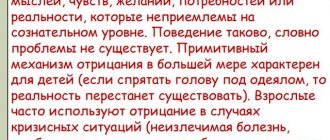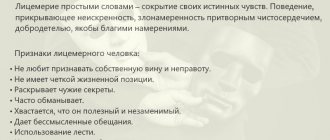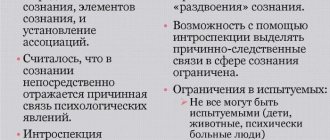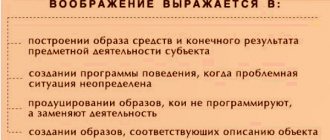What it is?
What is cunning: does this concept have a definition? Cunning is the ability to use various methods and techniques that a person has in order to achieve his goals. The definition is pretty clear, isn't it? Although, let's translate it into a more accessible language.
Cunning is deception with the help of which one’s goals are achieved. Such a definition will be more honest and correct.
Definition of the concept
It is quite difficult to give an exact definition of cunning, since it is multifaceted. Further in the article we will consider the concept of cunning as it applies to a person’s personality.
Cunning is the ability to use different methods and techniques to achieve a goal.
To be more precise, cunning is a deception, thanks to which one easily gains confidence in a person for the sake of further obtaining one’s own benefit. In cases where someone close to you is deceiving, it looks like betrayal.
What actions show cunning:
- Depending on the circumstances, a person changes his opinion to a completely different one, sometimes even the opposite.
- Knowing the weaknesses of another person, use them for private purposes.
- Hypocrisy, i.e. say one thing and do something different.
It is worth noting that, good or bad, everyone is cunning. It’s just that many people do it unintentionally, which makes them seem straightforward and unsophisticated. Even small children, when they need something, begin to dissemble to influence adults:
- They pretend to be sick so as not to go to school.
- Healthy enough to let you go for a walk.
- Erasing bad grades in school diaries.
- They throw tantrums in stores when they don't get what they want.
This trend does not end with age. On the contrary, the individual hones his skills and uses his skills everywhere.
Types of cunning
What is cunning and what types does it come in? We have dealt with the first part of the question. Now let's talk about the second one.
Cunning can be innate or acquired. Innate cunning is an intuitive behavior pattern. It allows you to achieve your goal in various indirect ways: resourcefulness, invention, dexterity and other techniques. Often innate cunning manifests itself in primitive lies. For example, a child deceives his parents, but they know that he is lying. And when the child is exposed, the descendant throws a scandal, trying to get his way. Here the parents either retreat, thereby reinforcing the child’s unwanted behavior, or stop such behavior. Innate cunning is based on intuitive behavior and does not require knowledge.
As for acquired cunning, it is based on knowledge. A person gains worldly experience, acquires wisdom and learns to achieve his goals in indirect ways. All useful tricks that a person acquires in the course of life are built on knowledge.
How to be cunning
To become cunning you need to know the right approaches to people.
Moreover, each person needs his own individual approach. Applying the same behavioral techniques to different people allows you to quickly recognize deception. They can be punished for it, and it is also possible to make a bunch of enemies. Cunning people, as a rule, try to live without conflicts. They lie in order to achieve their goals peacefully. Such personalities can influence a person in such a way that he will be ready to do anything for the cunning person and will be happy about it, not realizing that he was used.
The trick is multifaceted
The first subsection provided a definition of this concept. But is it really that simple? What does cunning include? Deception, deceit, resourcefulness, concealment of something, manipulation, hypocrisy. Some of the listed qualities can hardly be called positive.
But is a cunning person equal to a deceiver? Not always, because very often it happens that cunning is used not with the aim of distorting the true facts, but in a wise context. It’s one thing when a person sells a dog because he’s moving and keeps silent about the fact that it has already bitten all family members more than once. Cheated? Yes, but this trick is false. And it’s a completely different matter when a woman has to spin around and save a pretty penny because her husband doesn’t give extra money for expenses. And my wife is on maternity leave, for example. And with the money saved she buys something for the child. Also cunning, but based on wisdom. A woman is cunning not for the purpose of lying, but in order to improve the life of her own child.
Or the husband sees that his wife is upset. He gives her a compliment that may not be true. The man is cunning, but it is a wise cunning.
Another example: a father manipulates a child, knowing how much he loves him. And he manipulates in his own interests, without taking into account the moral state of his offspring. Is this a positive trick? Of course not.
Signs of a cunning person
Watch the person, see how he behaves, pay attention to what he says.
For example, if a person treats everyone around him with great suspicion, and without any reason, it is possible that she judges others by her own example. A cunning person is wary of others. He believes that others also pursue their own goals when communicating with others. If you have met a very distrustful person who suspects other people of having unclean thoughts, it is possible that he himself is quite insincere by nature. Have an intimate conversation with the person. Watch how he talks about simple human topics. Discuss with him such concepts as good, evil, honesty, justice, greed. You can do this by using some recent event to start a conversation. Observe how sincere the interlocutor is with you, whether he readily makes contact or is cautious. By the degree of openness of a person, you can sometimes determine how cunning or simple-minded he is.
Sometimes a cunning person can be seen by his facial expressions and gestures. He will not keep his hands in sight again. Such people have developed a reflex that helps them lie and manipulate others. Also, a cunning person may avoid looking directly at the interlocutor. He will find a reason to look away. Sometimes the gaze of such a person becomes shifty. There are people who, on the contrary, will look you straight in the eye. Such a deliberate, intent, unnatural gaze can also become a warning signal for you.
What's wrong with the fox?
We have looked at what cunning is. This concept is multifaceted. And you can add something else to it. The “composition” of cunning includes flattery. This is what that same red fox took - the trickster from Russian fairy tales and fables.
Take, for example, the fable “The Crow and the Fox.” The fox really wanted cheese. But instead of asking the crow, she charmed the bird. Having asked honestly, it is unlikely that the redhead would have received the desired piece in full. If only I had received it at all. And if you were flattered by how well the crow sings, please eat. The crow was hooked and paid with its food.
How often do people become such ravens when they fall for flattery? Only the payback is much more expensive than a piece of cheese.
Household tricks
They say that every housewife has her own tricks. Some, for example, are very good at preparing marinades with their own hands; such housewives have their own tricks. Secondly, they bake amazing pies, and thirdly, they cook soups that will make you lick your fingers. Is there any deception in such tricks? No, they are built on worldly wisdom. And they do not harm others, rather the opposite. If you go to such a hostess's house, you won't leave hungry.
Each of us has our own household tricks. How, for example, do you clean a microwave? It's simple: pour water into a bowl and put it in the microwave for half an hour. This everyday trick will be useful to many housewives.
How to develop cunning
There is an opinion that it is easier for cunning people to achieve success, say, in their careers. Many people even want to develop cunning in themselves, and you shouldn’t think that this is unrealistic. In general, psychologists believe that you can correct any character trait if you have the desire and systematically work on yourself.
First of all, to become more cunning, you should increase your attentiveness. The desire to notice and remember even the smallest details may one day allow you to get out of a difficult situation and cleverly turn it to your advantage. In this case, the ability to understand people and draw conclusions about their character or mood based on indirect signs can play a special role.
About cunning and emotions
We now know what cunning is. What it is like and what it is based on. The subtitle is quite strange, but the question arises: will a cunning person allow himself to have emotions?
Imagine that you really want to wash the bones of a harmful and annoying colleague. She needs everything, she sticks her nose everywhere. Again she offended her young colleague, and she can’t wait to express her indignation and share it with her colleague and friend. So a young girl shares such injustice, is indignant, and decisively condemns the old and harmful employee who reprimanded her.
Have you released your emotions? But is this a wise thing to do? Hardly. A wise and cunning person will not give vent to his emotions in public. But he will make it so that the same colleague-offender will release emotions. And he will do it very competently and subtly, without offending her.
Is it possible? Quite. Calmly listen to the offender, and then, without raising your tone, say that the boss has no complaints about the work yet. How long ago did a colleague become his deputy? Or did he shift his authority to her? Oh no? Then please do your job, and I can handle mine on my own.
Is your colleague outraged? Her right. Everything was said culturally, without getting personal. Why is this lady letting out emotions, who is to blame for her? You need to be more balanced.
Interesting everyday tricks
Do you know what everyday tricks are and how interesting they can be? Let's talk a little about them:
- Do you have to hammer a nail, but you're afraid of hitting your finger with a hammer? The nail can be held with a clothespin.
- It is necessary to remove text written with a pen or printed. A piece of sharp glass will help. They can be used to cut letters without damaging the paper.
- Need to mend a hole in your sock? Use a regular light bulb. Put a sock on it and tighten the hole. You can sew it up.
- The computer refused to read the disk? The disk is moistened with cold water, wiped dry and again given over to the computer.
- To measure the length of something, you don't have to look for a ruler. A matchbox can replace it. Its length is 5 cm.
- For those who suffer from acne, there is a simple recipe: a tablet of any antibiotic, suprastin and aspirin is crushed. Add half a teaspoon of water and stir the mixture. Apply to problem areas using a cotton swab, remove after 15-20 minutes and wash with cool water. After a couple of weeks of this course, the number of acne will noticeably decrease.
Let's summarize
The main purpose of the article is to tell the reader what cunning is. The main aspects are highlighted below:
- Cunning is the ability to achieve one’s goals with the help of tricks and manipulations that a person owns. This is to put it very briefly and simply.
- It can be congenital or acquired.
- Cunning is not always deceptive and flattering. It is often associated with wisdom.
- If cunning does not harm others, it can hardly be called deception.
- An emotional person does not have sufficient wisdom if he does not know how to hide his emotions. And that means cunning.










